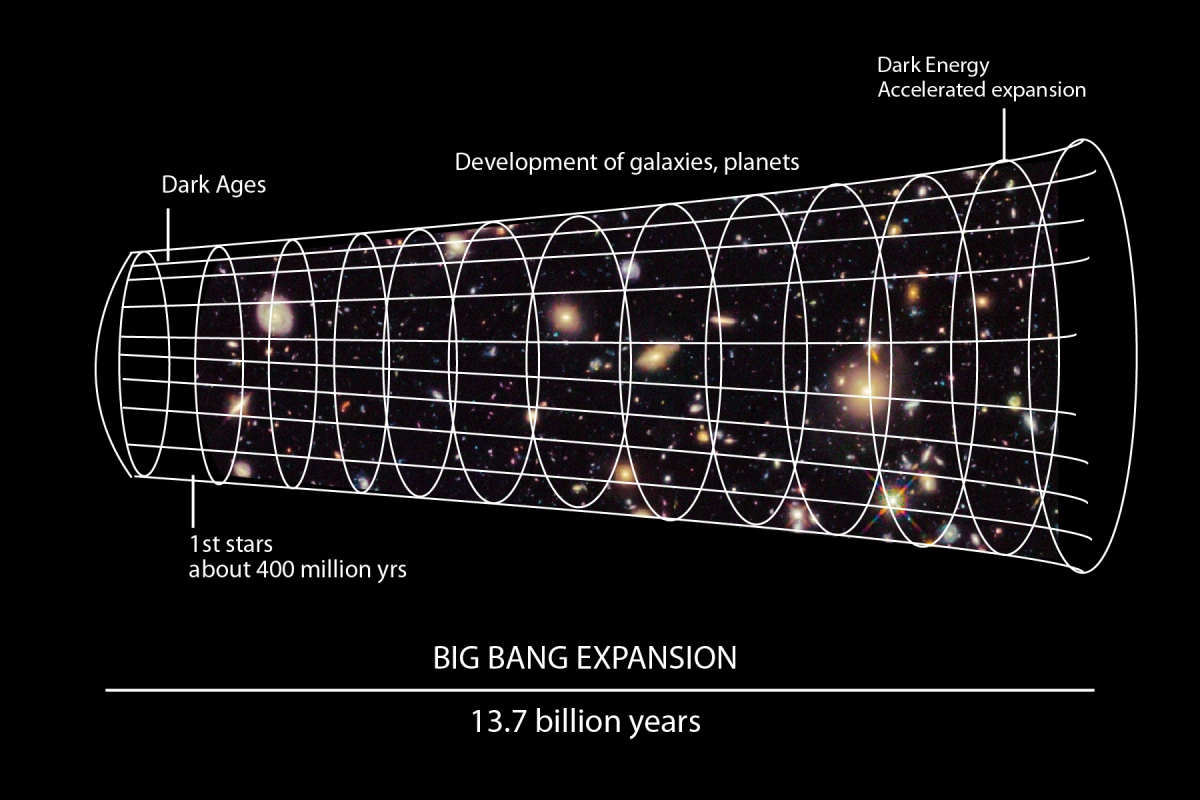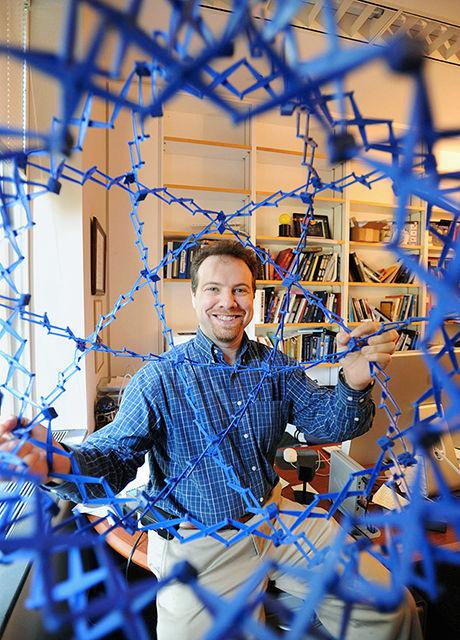When astrophysicist and Nobel Laureate Adam Riess visited NC State Monday, he visited physics classes, had lunch with both undergraduate and graduate students studying physics and delivered the annual L.H. Thomas Lecture. Riess also sat down with the Technician to discuss what it meant to be a scientist who had won the Nobel Prize, the progress and discoveries within his own scientific work and an expanding universe could hold in store for human beings.
Riess shared the 2011 Nobel Prize in Physics with Brian Schmidt and Saul Perlmutter for their discovery that the rate at which the universe is expanding is accelerating.
The following interview has been edited for length and clarity.
Q: For any scientist, winning a Nobel Prize is a life changing and life affirming experience. Did it change your life in any way?
A: For the most part, it didn’t. It didn’t change what I wanted to be doing, which was doing good science. It could have changed my life more dramatically, and I would say for most people it does. Most people accept most of the invitations they get, and they tour around speaking in places like India, China and all over the world. I say no to most things so that I can continue maintaining the science that I do, and so I can stay close to my family especially because I have young children, ages 4 and 11. So I didn’t want to be on the road. But to be honest, I will say that I have been amazed that people think I am a lot smarter than I actually am. And so there are many rooms that I am in where I feel that I am getting a kind of respect, an intellectual respect that I am not used to and that isn’t always merited.
Q: What kind of progress have you and your colleagues made since your initial discovery?
A: So we have been trying to characterize the nature of this dark energy that seems to be causing this acceleration, and in the last decade we have been able to measure that well enough that it looks similar enough to this thing Einstein theorized, called the cosmological constant. We still have a ways to go in terms of characterizing it. It could have looked quite different, and that wasn’t the case. So we have measured the equation of state of dark energy, which is the amount of the strength of dark energy per cubic centimeter that pushes the universe, and we’ve been able to calculate that equation within about 10 percent of precision. Now we are trying to measure if that value has been changing over time. Einstein’s cosmological constant makes specific predictions that it would not be changing over time and then the value would be completely exact. So we’re trying to improve our data by taking all kinds of measurements with telescopes.
Q: We know that the rate at which the universe is expanding is accelerating based on your work. What kind of effect does the expanding universe have on us and what impact will it have?
A: Well, we understand more about our world when we understand physics. And technology usually flows down from a deeper understanding in physics. It’s not immediate; it’s not like next year, but a lot of physics that people worked on in the 1930s and 40s, quantum theory and general and special relativity looked purely theoretical and esoteric then, but they gave rise to lasers, circuits, your GPS, are all reliant on that science. I think if you had asked Einstein back in in 1917, “General relativity, what is it going to be good for?” He would not have been able to say that if you had a smartphone and a network of satellites, you’d be able to find your location on the globe using GPS. These are not things people usually are aware of. Technology enables all of this. And you know there is also the curiosity factor that people want to understand what’s out there and what it means. What is the nature of the universe? For people that are deeply curious, this is not a large investment of time or energy or resources to spend to answer why we are here.
Q: As a member of the High-Z Supernova Search Team, you were competing directly to find evidence that the universe was expanding with the Supernova Cosmology Project. Your team published its paper in 1998, and the SCP team followed suit by publishing a paper confirming your results in 1999. On that note, do you think that there is enough competition in science?
A: There are different types of competition. There are places with healthy competition and unhealthy competition. I think a healthy competition is when two groups are working on something exciting and both want to be first to make a discovery. But in the end, even though one of the groups comes in second, it is very valuable to science to have some experiment replicated so we can know it is right. So I think multiple people trying to be the first to do something important, that is how science should work and everybody gains.
Sometimes the competitiveness exists because science funding is so low. I’m thinking about the National Science Foundation now, which can fund less than 10 percent of projects. Then I think the competition can become unhealthy. It isn’t clear to me which is the best 10 percent of science to be doing and the way the process is set up that different groups are arguing for the claim that what they are doing is the most important thing to be doing, we don’t often know if that is the case. But the way the system is set up, these groups are competing are by using different tools of marketing and business and I think this is when it becomes unhealthy.
Q: If science funding remains low, do you think we could see an exodus of scientists to other countries that are willing and able to provide sufficient funding?
A: I don’t know. I do know that there are some areas where we see an exodus because the United States makes clear that it isn’t willing or able to fund a big project or experiment. Take the Large Hadron Collider for instance, this big particle accelerator in France/Switzerland. The United States had an opportunity to be leading in that. It started the Superconducting Super Collider in Texas, but Congress canceled it, and the Europeans took the lead. That had always been our area, energy particle physics, cyclotrons. We ceded leadership of that and scientists will go and follow the great experiment because that’s where the breakthroughs will occur and they want to be part of that. I’ve seen it happen in limited situations where there was a facility to build, and the U.S. doesn’t want it, so people will leave. I don’t know if that will a broad phenomenon or not, but I think it is important for the United States to maintain leadership in these areas.
Q: Do you have anything else you want to say regarding physics, scientific research, education or the Nobel Prizes?
A: I would say that I know sometimes that science can seem hard and the people that pursue it might seem quirky, but it is definitely worth the effort to put in to learn about it because it’s part of understanding who we are and where we are in the universe. And I think never before has it been so easy to access information about science. When I was a kid, you had to pick up one of these books called an encyclopedia and actually had to look stuff up, and they didn’t tell you very much. Now you have Wikipedia, and you can find out anything you want. You know, it has never been easier to sit in your pajamas in your house and find out everything we know about the universe. I hope people take advantage and find answers to their questions.
Astrophysicist and 2011 Nobel Laureate Adam Riess visited NC State and delivered the annual L.H. ThomasLecture Monday afternoon. Riess, pictured here in his office at John Hopkins University, sat down with the Technician to discuss a wide range of topics including the expansion of the universe and funding of scientific research.














